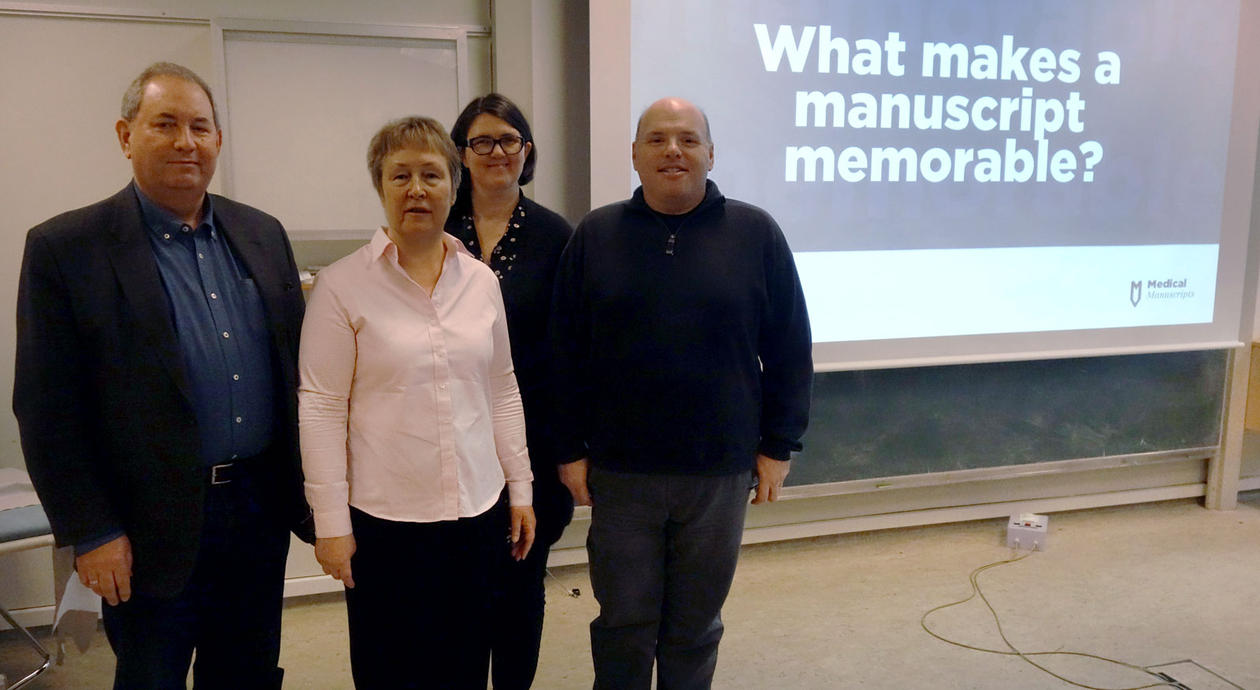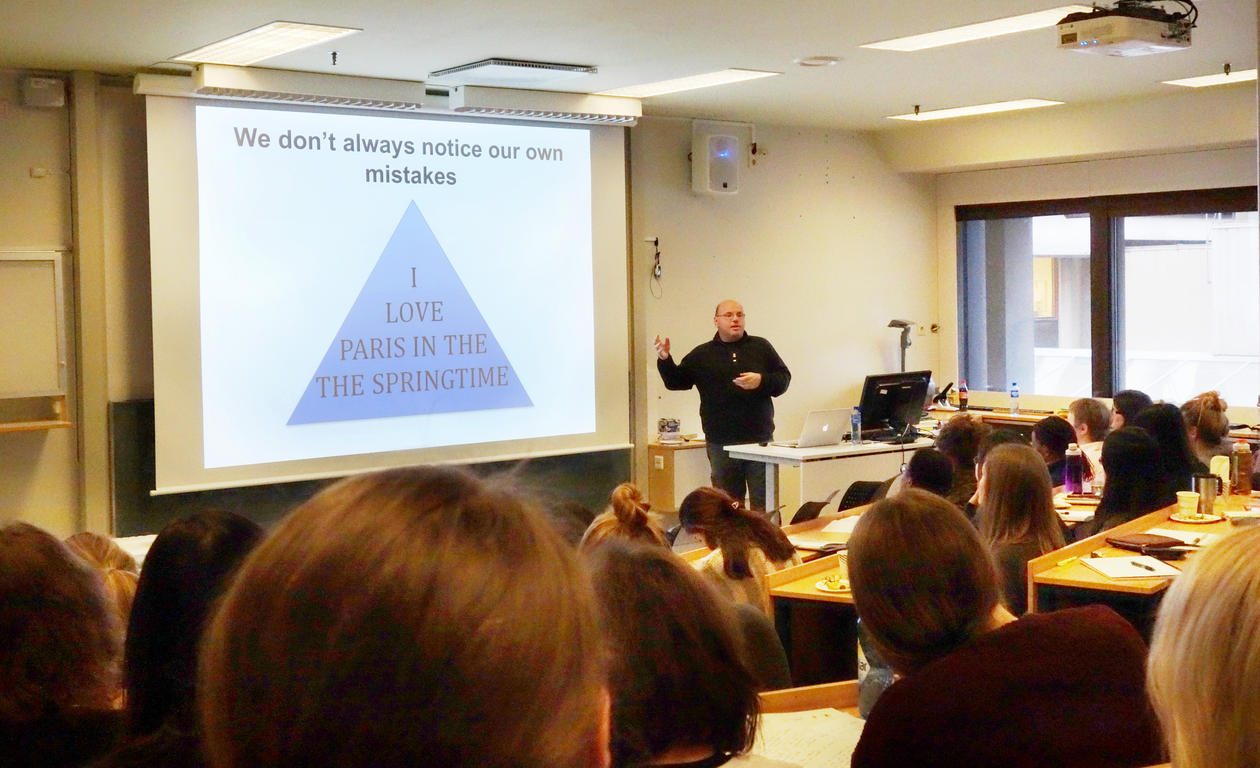The art of writing a scientific paper
The Centre for Cancer Biomarkers hosted a two-day seminar in scientific writing December 13th and 14th, and the massive interest proves that this is an issue both students and researchers feel the need to learn more about.

Hovedinnhold
A Harvard collaboration
This was a seminar that came about through an exchange program between the University of Bergen and Harvard Medical School. More precisely, through an INTPART program where CCBIO has received funding from the Recearch Council of Norway (RCN) and the Norwegian Centre for International Cooperation in Education (SIU) to promote students’ education and exchange in a collaboration between CCBIO and the Boston based Harvard Medical School and Harvard Kennedy School. Elisabeth Wik and Randy Watnick coordinate the program at the Bergen and Harvard sides, respectively. Exchange programs, courses on vascular biology and seminars on transferrable skills are in the planning. This two-day seminar in scientific writing was the kickoff of the CCBIO-INTPART program.
Great interest
The seminar was fully booked shortly after announcement. This was an open seminar, and students from different departments of the Medical Faculty were registered, along with a few participants from other faculties at the University of Bergen. Master students, PhD students, postdocs and senior researchers attended. Also, several researchers from Haukeland University Hospital participated. The auditorium, which takes 90, was full, and the organizers managed a long waiting list till the last minute.
British humor and an American oracle
Christine Møller, assistant editor of APMIS (Acta Pathologica Microbiologica et Immunologica Scandinavica) and an experienced lecturer in medical and scientific writing, took the students through a mix of presentations and exercises on ‘how to improve your writing’.
"Christine presented in a fabulous way", coordinator Elisabeth Wik reports excitedly. "She gave us practical tips for clearer writing in a very straighforward manner", Elisabeth continues. "Christine encouraged us to write simple, concrete, unexpected and inspiring, to catch the readers and to stand out amongst the millions of papers that are being published. There was not a dull moment – because on top of sharing very useful practical tips for improved writing and stories from her experience as assistant editor, she spiced the lectures with her British sense of humor. One of the students wondered where we had found this lady, she was so impressed!"
Randy Watnick, assistant professor at the Vascular Biology Program, Harvard Medical School, lectured about scientific storytelling and mistakes and pitfalls to avoid when writing papers.
"You know, Randy is an experienced cancer researcher with several high impact papers on his CV", Elisabeth Wik explains. "He proved a great advisor in matters such as ‘how to present your data’. The audience fired off lots of questions to him, giving him kind of an ‘oracle role’, which he filled very well."
Lighting a fire
Christine set out by inspiring the audience to ‘light a fire’ when communicating their research, making the manuscripts spark. After the course, hearing the feedback from the pariticipants, it was obvious that Christine and Randy definitely achieved their goal of lighting a fire to the focus on scientific writing. "We’ll go straight to our papers and start improving the text!" students exclaimed after the seminar.
The organizers certainly got their initial idea confirmed – that the lectures by Christine and Randy would complement each other in an excellent way, and fit the CCBIO aim of excellency at all levels!
Meeting a need
The huge interest in this seminar, from students and researchers at both the Medical Faculty, Haukeland University Hospital and other university departments, reflects a need for courses addressing ‘scientific writing’.
"Students have most likely realized that it is not always straightforward to have a paper published. Journals and editors focus more and more on 'scientific storytelling' and how to catch the interest of the reader and how to keep it", says CCBIO Director Lars A. Akslen, commenting on the great interest. He adds a piece of good advice to students and young researchers who are in the process of writing a scientific paper:
"I think it is important to read a lot, to read editorials and commentaries, and study high-impact papers. In the process of writing, you should reflect on how to rank your own findings in order of significance and potential impact. Finally, try to simplify your paper as much as possible. You need to follow the basic rules but also engage in the narrative process."
Considering scientific writing a part of CCBIO curriculum
A course like this fits well as part of the PhD program at the Medical Faculty. To mention, also more of the senior researchers, associate professors and professors at campus would most likely benefit from attending a course like this.
CCBIO plans to arrange the ‘Scientific Writing Seminar’ over again, contributing to improved writing amongst our colleagues in research.

